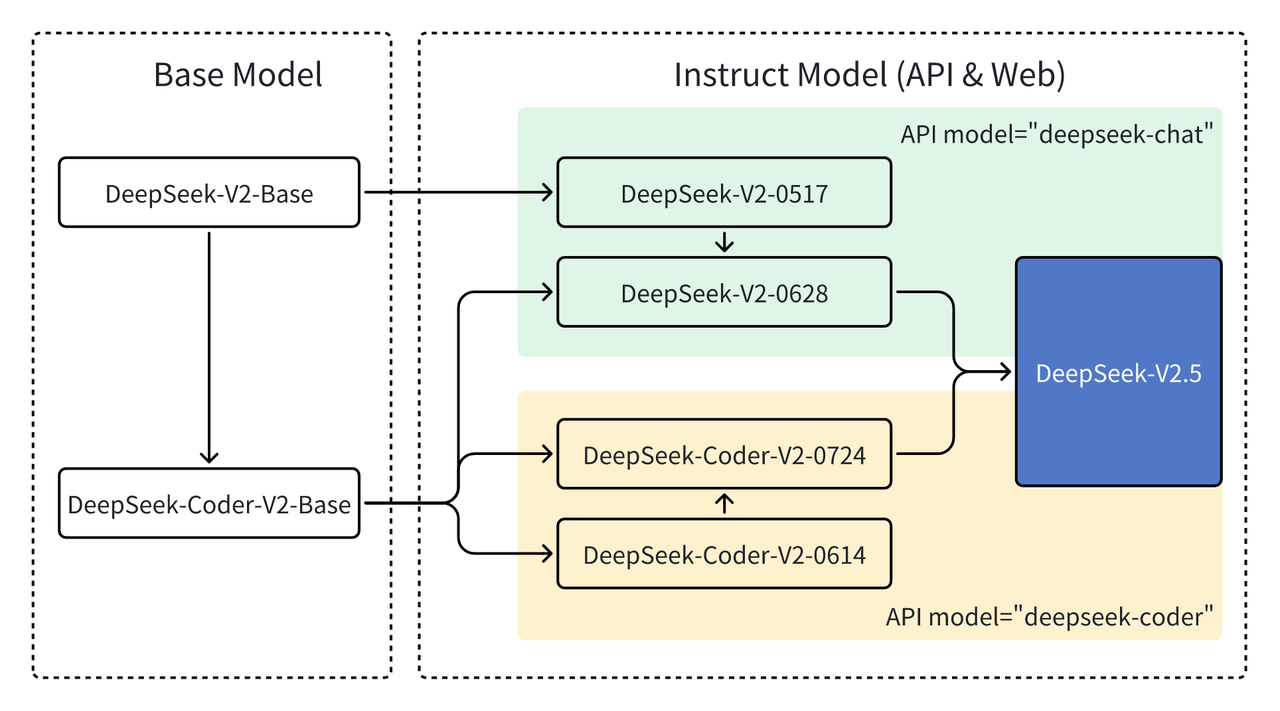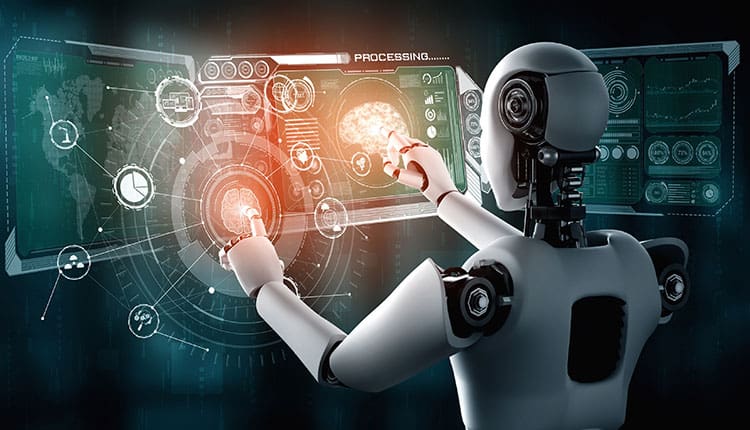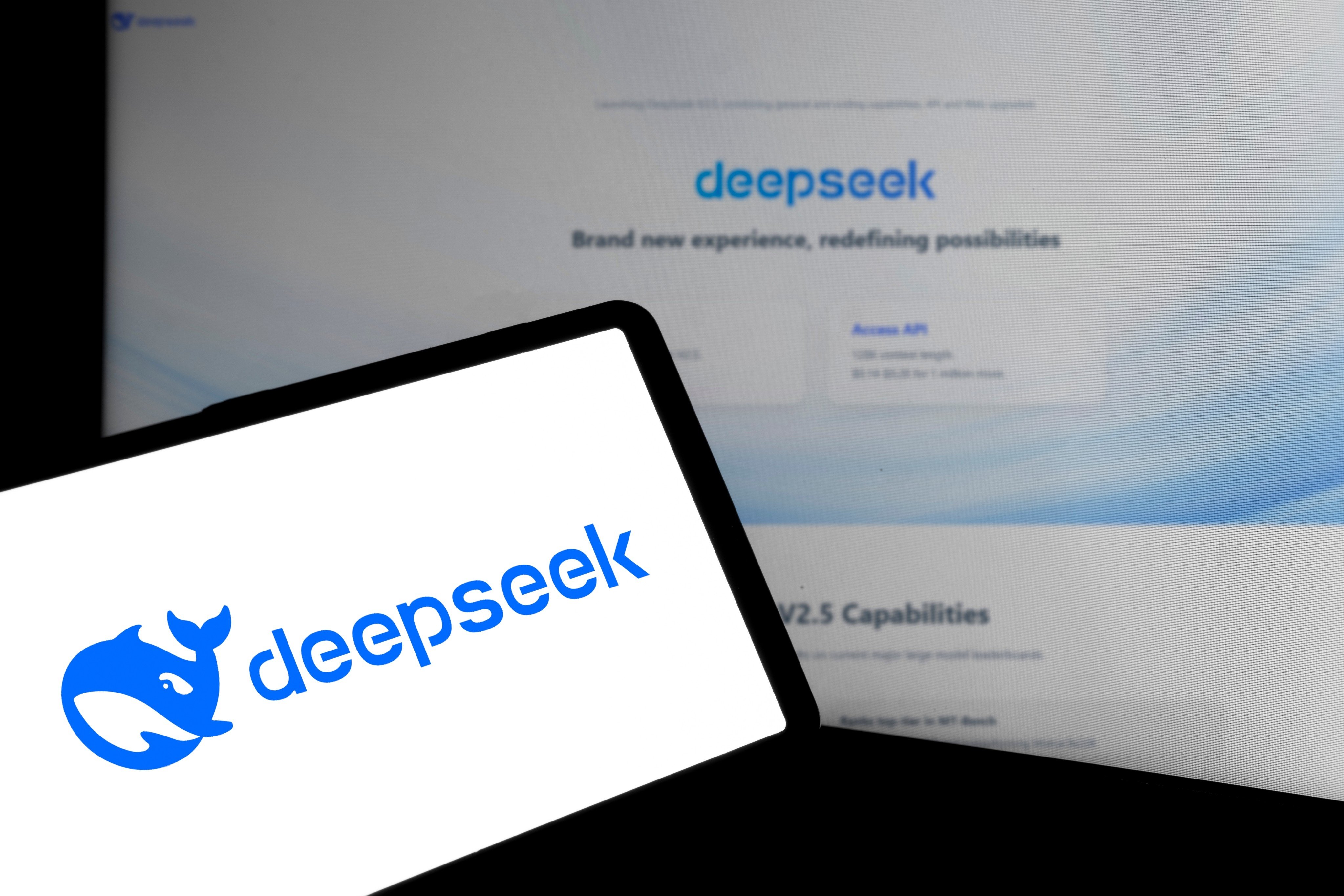
We may make cash when you click on links to our partners. Find out more.
What is artificial general intelligence (AGI), and why does it matter? As one of the most talked-about subjects in technology today, it has actually sparked a race amongst top companies like OpenAI and Google to turn this cutting-edge principle into reality. Understanding AGI is very important since it has the prospective to revamp industries, impact our society in extensive methods, and change the way we engage with technology. Here's what you require to understand about what it may be able to do, how it might change industries and fields, and the substantial challenges facing its development.

KEY TAKEAWAYS
• AGI differs from standard AI in key methods in that it would be able to think, discover on its own, and adapt to new difficulties like people unlike conventional AI, which is developed for specialized tasks and runs within a minimal scope. It needs human beings to upgrade and refine capabilities. (Jump to Section).
• Once it becomes a reality, AGI would have the ability to make remarkable advances in numerous fields, including healthcare, research, and finance sectors. (Jump to Section).
• Creating AGI is hard due to the research challenges that include technical, ethical, and social concerns. Addressing these difficulties is central to preserving the safe and positive advancement of this innovation. (Jump to Section)
Featured Partners: Expert System Software
Discover more
TABULATION
What is Artificial General Intelligence (AGI): A Clear Definition.
Understanding AGI vs Traditional AI.
Potential Applications of Artificial General Intelligence.
Challenges in Artificial General Intelligence Research.
3 Introductory AGI Courses to Consider.
Frequently Asked Questions (FAQs).
Bottom Line: Why Knowing What Is Artificial General Intelligence Matters.
What is Artificial General Intelligence (AGI): A Clear Definition
Artificial basic intelligence, or AGI, describes a kind of expert system (AI) that can translate, find out, and carry out any cognitive task that a human can do. Unlike today's AI, which is built to manage particular jobs like recommending products or processing information, AGI would have the ability to adapt to new difficulties and use understanding across various fields. Simply put, this sophisticated type of AI would think and reason like a human. While AGI holds excellent possible, it deserves noting that it is still a principle today, without any completely developed systems readily available yet.
Key Capabilities of Artificial General Intelligence
AGI would have a variety of capabilities that simulate human intellectual functions, so it can perform tasks beyond the narrow focus of the present AI tools in the market. Some essential abilities include the following:
Human-Like Reasoning: The technology would have the ability to understand and make decisions the method humans do. It would think seriously, fix problems, and come up with services based on its own experiences and previous interactions, similar to how we use previous knowledge to brand-new situations.
Solving Unfamiliar Problems: One of AGI's strengths is its potential to take on new problems. Unlike conventional AI, which is trained to perform particular jobs, AGI would have the capacity to handle issues it hasn't been directly trained to fix. It might determine how to approach a completely brand-new challenge, simply like people do when faced with something we have actually never ever come across before.
Self-Learning and Adapting: AGI might tweak its abilities and gain from experience, without the need to be by hand upgraded each time. It would observe and analyze data, gain from errors, and discover much better ways to complete jobs in time. This suggests AGI could adapt to new situations and get better at tasks by itself.
Using Knowledge Across Different Areas: AGI would have the ability to take what it learns in one location and use it to other tasks. For example, classifieds.ocala-news.com if it discovered how to resolve mathematics problems, it could utilize that knowledge to resolve challenges in other fields, like science or organization. The capability to transfer abilities across different areas is something humans do naturally and would make the innovation flexible in diverse sectors.
Understanding and Reacting To Emotions: Recognizing and responding to human emotions would likewise be within AGI's abilities. This would be very important in settings where comprehending people's feelings matters, such as healthcare, customer support, or social circumstances. By reacting to emotions appropriately, AGI would be better geared up to deal with human beings in an effective method.
Understanding AGI vs Traditional AI
The table below offers a picture of the significant differences between AI and standard or narrow AI by underscoring their capabilities, flexibility, and current status.
AGI would have the capability to think, find out autonomously, and adjust to new challenges like people. However, it is still theoretical and has not been recognized yet. On the other hand, conventional AI is constructed for specific jobs and runs within a repaired scope. It can not get used to brand-new tasks without human input.
For example, an AGI might discover to detect medical conditions, then use that understanding to develop individualized treatment plans-and even change its method based on the patient's progress. Additionally, it could use this problem-solving capability to jobs in totally various fields, such as developing business strategies or advising on environmental conservation. In contrast, standard AI, like a diagnostic tool, can only analyze medical information for particular conditions. It can not adapt to other areas or enhance on its own.
Potential Applications of Artificial General Intelligence
While AGI isn't here yet, its potential applications span various fields and hold great pledge of drastic developments in numerous sectors. Without being restricted to specific jobs like narrow AI, AGI would be extremely versatile and might apply its capabilities to resolve multi-disciplinary issues. It could overcome difficulties currently beyond the abilities of existing AI applications.
Transforming Healthcare
AGI would alter the game in health care by detecting complex and uncommon illness with greater accuracy, even in cases where symptoms are ambiguous or overlap with several conditions. It could produce extremely personalized treatment strategies by studying patient history, genetic details, and real-time health information. In addition, AGI could accelerate drug discovery, determining possible treatments in weeks rather than years by processing enormous datasets and running predictive simulations.

Advancing Scientific Research
In scientific research study, AGI would be able to simulate experiments, analyze elaborate datasets, and produce hypotheses. It might expedite developments in quantum physics, genomics, and climate science. By integrating understanding from numerous domains, the innovation might discover connections and services that might otherwise go unnoticed by standard AI.
Improving Industry
Organizations in the commercial field could utilize AGI to enhance efficiency in real-time by managing entire supply chains. It would predict and deal with interruptions before they happen. In production, it might supervise self-governing factories, enhancing production processes while preserving safety and quality requirements. Its capability to adapt to changing situations would make it an invaluable tool in commercial environments.
Enhancing Business Strategy
AGI could improve company decision-making by examining market patterns, client habits, and functional data to find chances and dangers. In contrast to narrow AI systems, AGI would innovate options to challenging organization problems, such as dealing with economic uncertainty or forecasting long-lasting market shifts. Its capability to discover from diverse sources would empower services to stay competitive.
Redefining Finance
In the financial sector, AGI might increase forecasting accuracy by detecting patterns in huge quantities of financial data, so investors and organizations can make informed decisions. It would likewise have the ability to find scams in real-time by recognizing subtle abnormalities that standard AI systems may miss. Additionally, utahsyardsale.com AGI could construct more robust monetary designs, considering complicated variables and situations to alleviate dangers.
Challenges in Artificial General Intelligence Research
Developing AGI is one of the most ambitious goals in innovation, but it includes lots of problems. These challenges include technical, ethical, and social locations, making AGI advancement a complex and multi-faceted process. Overcoming the following challenges amounts making sure safety, upholding ethical standards, and carefully preparing how AGI's intro and use will impact people, industries, and society as a whole:
Making AGI Truly Flexible: AGI would require to handle a broad variety of issues and adapt to brand-new circumstances, much like people. Building a system of flexibility is incredibly difficult since present AI tools are not designed to believe or discover at this level of elegance.
Massive Computing Needs: To duplicate human intelligence, AGI would require huge amounts of calculating power to process info from varied sources quickly. Figuring out how to make such systems effective and effective enough for real-world usage is a considerable difficulty.
Understanding Human Intelligence: We do not completely understand how human believing works, specifically complex aspects like instinct or consciousness. Without this understanding, it's challenging to build makers that can replicate human-like thinking.
Making AGI Safe and Ethical: AGI could possibly be misused, like to produce biased systems or harmful tools like self-governing weapons. Researchers need to ensure that AG is developed properly and follows rigorous ethical standards. This is a difficult job that requires global cooperation.
Keeping It Under Control: There's a danger AGI might act in methods we do not anticipate, specifically because it would have the capacity to learn and change over time. Ensuring that these systems remain aligned with human values and are safe to utilize is among the greatest difficulties in AGI research.
Impact on Jobs and Society: If AGI comes true, it might replace tasks or trigger financial inequality by benefitting some groups more than others. Getting ready for these social effects is just as important as constructing the innovation itself.
High Costs and Resources: Researching AGI demands a lot of money, time, and expert understanding. Not all companies have these resources, slowing down development and leaving smaller businesses out of the race.
3 Introductory AGI Courses to Consider
Familiarizing yourself with AGI can offer you an one-upmanship, whether you want to advance your career in AI or simply want to remain informed about emerging innovations. The following initial courses can assist you get a deeper understanding of what artificial general intelligence is, so you can solidify your understanding about this promising AI improvement.
Artificial General Intelligence (AGI): An Initial Course on Udemy
This Udemy course supplies an essential understanding of AGI, suitable for beginners without any prior experience. The course covers appropriate topics, including the foundations of AI, the fundamentals of AGI, and the most recent patterns in the field. It also checks out the advantages, threats, and difficulties connected with AGI, equipping you with insights into what the sophisticated innovation can attain. The entire course consists of 15 lectures and can be finished in approximately 45 minutes. Upon completion, you will receive a certificate to reinforce your credentials in the job market. This introductory course expenses $24.99.
Intro to Artificial General Intelligence (AGI): Future of AI on Udemy
Udemy's initial course offers a detailed introduction of AGI for students with no technical background. It talks about the historic context and foundation of AGI, the distinctions between narrow AI and AGI, and ethical factors to consider surrounding its development. In addition, it deals with future trends in AI and AGI, shedding light on the challenges and chances that lie ahead. Spanning one hour and 46 minutes, the course consists of 39 lectures, on-demand video, and downloadable resources. It also has a practical test at the end to strengthen your understanding. You will be granted a certificate when you complete the course. It is offered as part of Udemy's premium strategies, starting at $20 each month, or as a separate purchase of $49.99.
Artificial General Intelligence (AGI) on Udemy
This Udemy course brings a clear and succinct intro to the topic, with on-demand videos and 22 lectures. It elaborates on major AGI concepts and the function of robotics in AGI development. It likewise analyzes the ethical, software application, and hardware challenges in creating AGI. The course offers tests to check your understanding and a certificate of completion. Priced at $44.99, it is made for learners at any level, making it available and important for anybody who wishes to discover more about AGI.
Frequently Asked Questions (FAQs)
Achieving AGI might transform markets, enhance decision-making, and result in considerable advancements in technology. However, it likewise raises issues about ethics, job displacement, and the requirement for correct guideline to make certain it is established securely and properly.
Experts disagree on how far we are from attaining AGI. Sam Altlman of OpenAI thinks in 2025, AI agents may join the labor force, eventually paving the method to AGI advancement. On the other hand, a survey of AI scientists puts the mean price quote around 2047. Despite fast AI developments, current systems are still restricted to narrow tasks and do not have the broad, flexible thinking of humans-so AGI is likely still decades away.
The concept of AGI completely replacing humans is still debated. Although it's most likely that AGI will help us by taking over repeated tasks, there is a possibility that it could displace certain jobs. That said, instead of completely replacing human beings, AGI is expected to work together with us, handling technical obligations while we concentrate on jobs that need imagination and empathy. At the end of the day, the impacts of AGI will depend upon how society selects to manage and incorporate it.

Bottom Line: Why Knowing What Is Artificial General Intelligence Matters
Understanding synthetic general intelligence is vital since this technology could alter markets, resolve tough problems, and transform how we use AI. But as we start to develop AGI, we need to thoroughly deal with a number of challenges, including technical concerns, ethical issues, and its overall impact on society. By learning more about AGI's prospective and threats, we can work towards making certain it is produced properly and utilized in methods that would benefit everybody.









